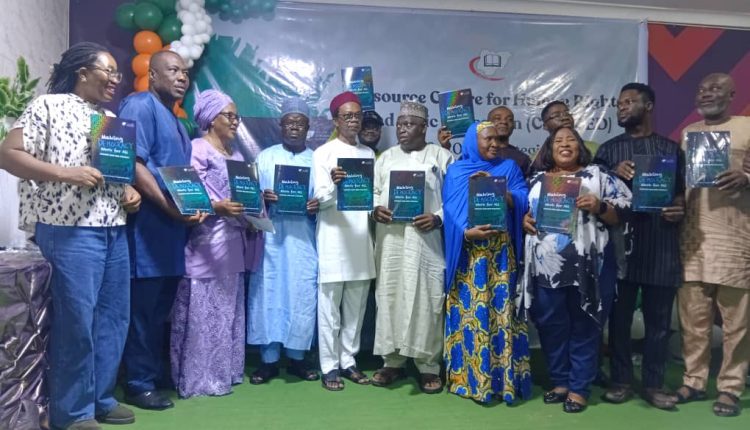Centre unveils 2026-2030 strategic plan, targets indigenous rights, environmental justice
|
Getting your Trinity Audio player ready...
|
The Resource Centre for Human Rights and Civic Education (CHRICED) on Saturday launched its Strategic Plan for 2026–2030, aimed at promoting indigenous rights, democratic accountability, and environmental justice.
Speaking at the event in Abuja, the Executive Director of CHRICED, Dr Ibrahim Zikirullahi, said the new strategy would provide a roadmap for transformative civic engagement.
Zikirullahi said the plan was a reaffirmation of the organisation’s commitment to justice, inclusion and democratic governance.
He listed six core pillars that would guide CHRICED’s interventions over the next five years.
According to him, the plan was crafted in response to Nigeria’s evolving socio-political realities, including climate change impacts, insecurity, digital repression, and others.
“The challenges before us are daunting, but they are not insurmountable. They demand courage, charity, and collective action.
“Climate change is reshaping lives and livelihoods, especially across northern Nigeria, where desertification and flooding threaten food security and displace families,” he said.
On indigenous rights, Zikirullahi stressed that a democracy that excluded its original inhabitants “cannot claim legitimacy,” noting that CHRICED would intensify advocacy for the recognition and inclusion of FCT indigenous populations.
He said the organisation would strengthen its work to reduce maternal and child mortality, describing the current rates as “unacceptably high.”
Zikirullahi also vowed that CHRICED would push back against digital repression by promoting digital literacy and expanding citizen access to platforms that amplify civic voices.
On democratic governance, he said accountability remained the “heartbeat of democracy,” pledging stronger support for community leaders, activists and media institutions holding public officials to account.
He added that electoral integrity would be a top priority, as “without credible elections, democracy cannot thrive.”
The executive director emphasised that the strategic plan was rooted in a rights-based framework informed by data, community consultations and a commitment to equity and transparency.
He expressed appreciation to the MacArthur Foundation for supporting the development process, and commended CHRICED’s board, staff and partners for their contributions.
Also speaking, Oladayo Olaide, Head, Strategy Committee, CHRICED board, said the new strategic plan would respond to the root cause of street children and curbing out-of-school children in the country.
Olaide emphasised that social protection, gender inclusion, requisite skills of the youth population to succeed and thrive would be mainstreamed in the plan.
He added that the organisation would continue to engage with government to address out-of-school children in the country within the stipulated five years of the strategic plan.(NAN)



Comments are closed, but trackbacks and pingbacks are open.